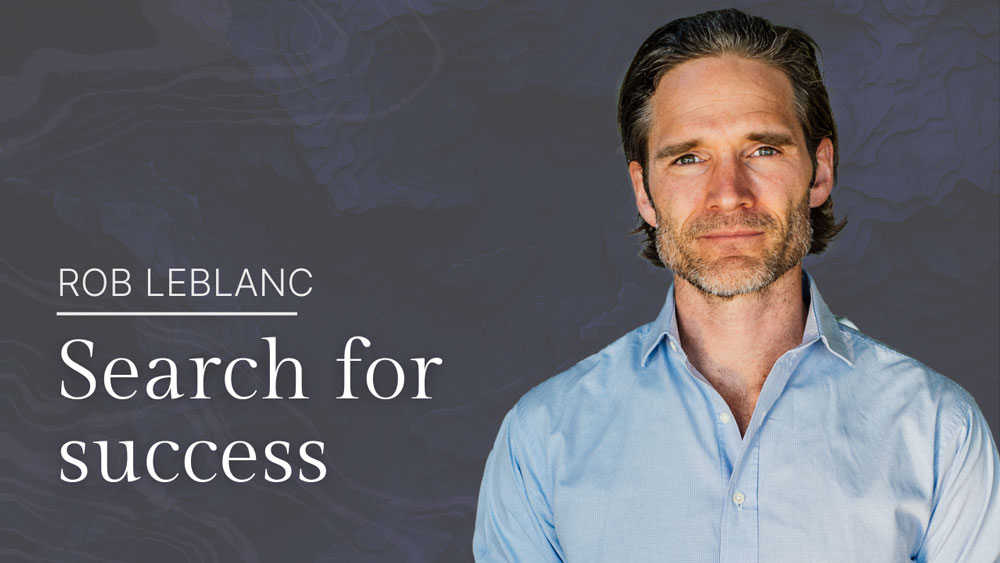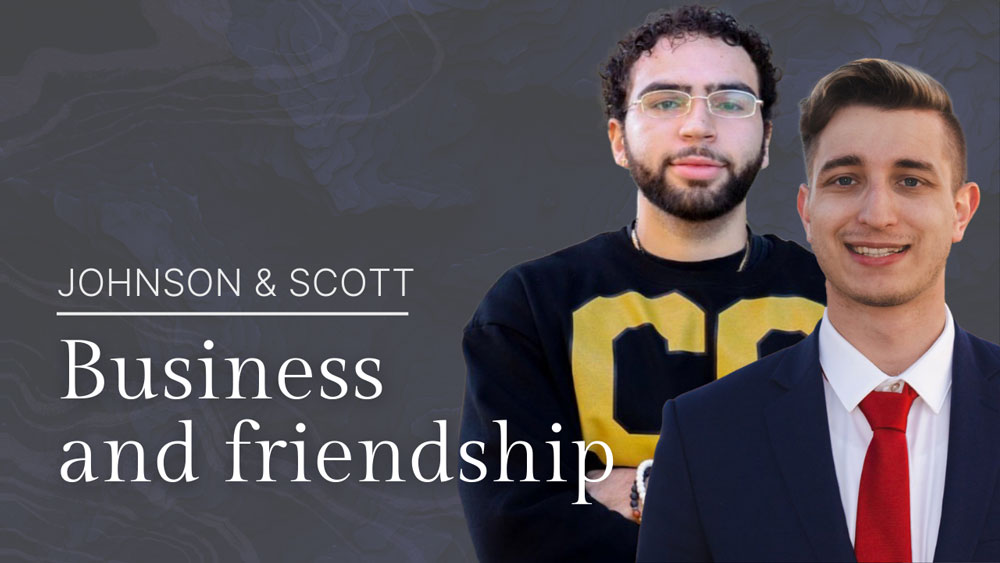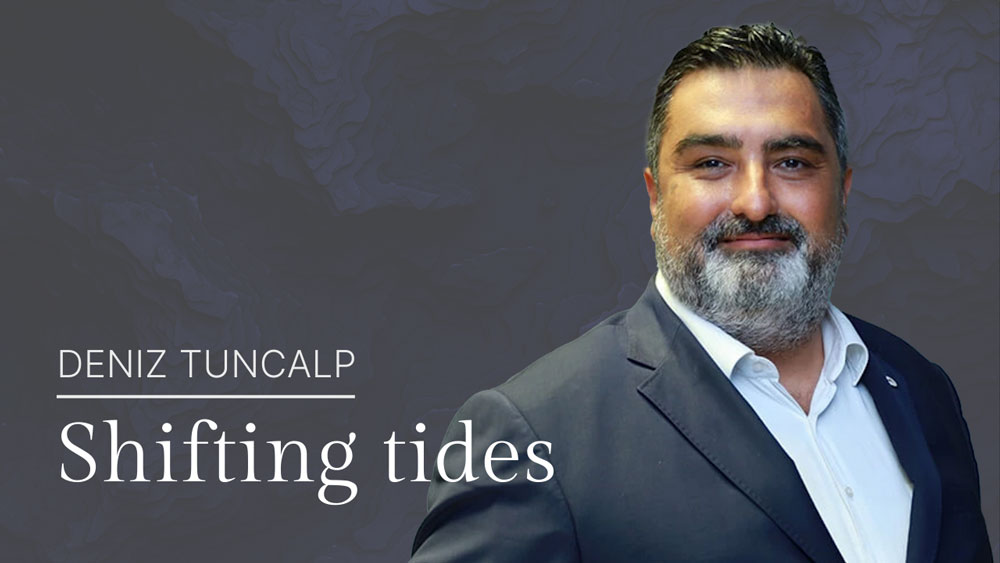Ayusha Mahajan
7
min read
Bridging Worlds Through 'Glocal' Search Fund Entrepreneurship
Rob LeBlanc
Co-Founder and Managing Partner | ambit partners
Key Highlights
Rob LeBlanc is not only a well-travelled entrepreneur but an entrepreneurial traveller. Co-founder and Managing Partner of international search fund investor ambit partners, Rob has lived and worked in several countries and applies the value of exploration and learning to his work as a search fund investor.
A venturous pioneer immersed in the niche space of international search fund investing, Rob takes a "glocal" approach to entrepreneurship by appreciating both global and local aspects of his work and identity. Familiar with the inquisitiveness of living abroad, Rob and his partners intentionally embed debate into their decision-making to strengthen deals.
Rob reveals the concerning scarcity of capable directors and mentors in search funds and encourages conscientious entrepreneurs to enter the flourishing space. He predicts that as the number of search funds increases, the quality of deals may decrease due to the growing surplus of investors and a lack of experienced directors, potentially affecting median returns.
Committed Voyager
Along with his co-founders Andrew Locke and Niel Wyma, based on the far side of the world in Cape Town, Rob LeBlanc is ushering in search funds to new and emerging international markets—all from his hometown in Vancouver. Co-founder and Managing Partner of ambit partners, a global search fund investor focused on enabling entrepreneurship through acquisition (ETA) in traditional and developing markets, Rob has had a taste of the Middle East, Southeast Asia, Latin America, and Africa in his personal life and professional career.
Born and raised in Vancouver, Canada, Rob initially anticipated venturing farther from home with each new country he called his own. He completed his undergraduate studies in Montréal, ventured into management consulting at a competitive Toronto-based firm, and then delved into traditional private equity. During his time at Harvard Business School, where he earned his MBA, he discovered the concept of search funds: an innovative mode of ETA that allows young and ambitious entrepreneurs to raise capital to acquire, nurture, and divest companies as a CEO, with invaluable support from investors and mentors throughout the journey.
Armed with the knowledge and awareness of emerging market venture capital, private equity, and social impact investing, Rob began a professional journey that led him to South Africa. There, he immersed himself in an impact private equity platform, using ETA principles to aid older business owners in transitioning their enterprises to younger successors. Years later, he initiated personal investments in search funds in North America before his path unexpectedly veered towards new searches in uncharted territories, particularly emerging markets. His extensive background of working and residing across Africa, the Middle East, Southeast Asia, and Latin America influenced this shift.
Eventually, Rob had ventured so far into the Eastern Hemisphere that he found himself back home in Vancouver, where he has been working with his American and South African business partners, both as well travelled and ambitious as himself.
“That was the germination of what became ambit: seeing search becoming more and more relevant, more and more applicable in new places.”
Glocal Entrepreneurship
Rob's unique journey encompasses both living in Canada and working across the globe, embracing a "glocal" approach to search fund investing. He experiences domestic life in his hometown while his professional spirit traverses such countries as Israel, South Korea, New Zealand, Poland, and Brazil, where he speaks to searchers thousands of miles from home. However, re-integrating with his hometown after years spent abroad has given him interesting insights into the identity he created away from home. Rob describes how his time outside of Canada led him to adopt a "hyper Canadian" identity, condensing all of Canada, familiar and unfamiliar terrain, into digestible chunks of cultural quirk. But being among his fellow Canadians again reminded him of the nuances of difference between him and ten provinces and three territories. International experience, however, contributes tremendously to Rob’s and his partners’ work, as they export a highly relevant business model cultivated in North America and adeptly apply it with local nuance, making their approach even more impactful on the global stage.
“I've always enjoyed the fluidity and privilege of standing on both sides of the fence and appreciating what's beautiful and valuable on each side, or what’s tough or not good on either side.”
Living in a new country can be an enlightening experience—living in multiple can be an overwhelming one. Rob has learned to follow an itinerary of newness and adjustment while settling in an unfamiliar space, involving identifying challenges, inquiring about them, pinpointing blind spots, and, most crucially, anticipating the unpredictable. Instead of assuming he has all the answers, Rob has recognized the significance of uncovering what he doesn't yet know.
“Doing it more times, at least for us, has bred less confidence that we know what's going on and more humility to slow down, listen, and ask.”

Co-Founders of ambit partners: Niel Wyma, Rob Leblanc, and Andrew Locke
International Search Fund Investing
For a few cleverly interlocking reasons, Rob and his partners also settled on the word “ambit” for their firm’s name. The choice stems from a harmonious blend of "ambition" and "gambit," both central to their work. "Ambition" represents the driving force of entrepreneurship, while "gambit" signifies a strategic move that involves making a substantial initial sacrifice for long-term gains. Together, these words create a compelling image of creative strategy and ambition. Finally, “ambit” stands as a word on its own, signifying scope or boundaries. It encapsulates their foundational principle of operating within their specific areas of expertise while embracing ambitious endeavours. Dressed in perfectly tailored meaning, the name could not have been a better fit for the company.
The partnership has invested across nearly 30 countries and is one of the pioneering international search fund investors in emerging markets. Search funds are slowly emerging internationally, with a record new 44 search funds formed in 2021, with 211 searchers spread across 34 countries on five continents (IESE Business School, 2023). However, less than half of those funds have seen successful exits, mainly because they are still in their early stages. Entering a brand-new space as an early adopter presents a pivotal choice between exploration and exploitation—whether to venture onward or establish a solid presence. Rob's perspective is that a country's first dozen search funds have ample room for remarkable success. However, he also anticipates that the search fund model may eventually saturate the international landscape. As a result, he currently finds contentment in being an explorer in this dawning phase of search and plans to switch to building a more established presence as opportunities dictate. And a distinct advantage of being a pioneer as an investor is meeting pioneer searchers, who are just as willing to explore and cultivate new experiences.
“We think the searcher who dares to do it early is stitched from a slightly different DNA than someone who wants to run on a well-paved track in a more established market. So we think we get the behavioural profile that looks a little like the pioneering founders present very early in the search world in North America.”
Rob also discusses other benefits of investing in emerging markets through the search fund model. Better buying opportunities are created by fewer buyers in these markets, less competition, faster growth, and potential for early exits. Additionally, he mentions the concept of idea arbitrage, where strategies from successful North American search outcomes can be applied, and experienced individuals from the search community can provide valuable insights into emerging markets. Despite acknowledging risks like poor infrastructure and political instability, Rob sees significant market opportunities.
When it comes to decision-making in something as unique as search fund investing in emerging international markets, three business partners can mean diverging opinions. But Rob and his business partners’ decisions are neither adversarial nor polite—he and his team intentionally build debate into their investment process. Whenever a decision has to be made, there is always a deal lead who works closest with the searcher and the transaction. The other two partners challenge the deal lead, who defends their position until they’ve (hope to have) found all the potential strengths and weaknesses of the decision. Research suggests that appointing a devil’s advocate can significantly improve a decision's quality and outcome (Harvard Business Review, 2020). Additionally, these roles can switch within a single investment committee meeting to maintain intellectual honesty and avoid bias towards a particular deal.
Scaling and Scarcity
One of the foundational aspects of the search fund model that puts it in a more appealing position than more traditional venture capital or private equity opportunities is the mentorship and guidance it offers for such daunting tasks as buying a company and taking it over as CEO. Directors play a crucial role in the success of search funds. They provide mentorship, strategic guidance, and industry expertise, helping searchers make informed decisions during the acquisition and operation of the target company. But will an increase in searchers promise an increase in directors to coach and direct entrepreneurial talent through the process? Rob articulated a concerning trend after collaborating on a research paper with A.J. Wasserstein from Yale University. While thousands of director seats are currently available, the pool of willing and capable director numbers is merely in the hundreds, and this disparity is growing wider over time. Rob's foresight suggests that as the number of search funds continues to rise, there may be a diminishing level of scrutiny in deal selection. Saturation could lead to lower-quality deals attributed to less capable and ambitious mentors or directors, ultimately resulting in more instances of underperformance that dilute the median returns for the entire community. The scarcity of director talent presents a significant and valid concern for the search fund community.
“We think active, conscientious, hands-on directors help. But over time, it might prove not so much the case. Until proven otherwise, we'd love to have more good directors with values aligned entering the game.”
At the moment, however, Rob has the luxury of choosing strong group members he can rely on as he embarks on his search fund adventures. He acknowledges that this entrepreneurial venture offers a considerable fear of failure but encourages curious explorers to try it out. Even if no concrete gains are made, the lessons learned and connections made can be valuable. And as every traveller returns home with a broader mind, so do entrepreneurs experiencing new ventures—but in that time, home could have changed just as much as they did.
“I think for anyone else pioneering, just be prepared for when you come back from pioneering, that where you left is different.”

Andrew Locke, Niel Wyma, and Rob LeBlanc
Conclusion
Co-founder and Managing Partner of ambit partners, Rob LeBlanc is committing to true exploration by not only immersing himself in the maturing space of search funds but also investing in emerging international markets. When choosing between startups and search funds, few choose search funds, and fewer choose to invest in them internationally. But Rob and his partners have invested across 30 countries, combining a global investment mandate with deep SME transacting and operating experience to support a portfolio of exceptional searchers.
As entrepreneurship through acquisition proliferates in North America and internationally, Rob predicts their appealing mentorship aspect will face risk as the number of search funds exceeds capable and willing directors to mentor the searchers. However, Rob’s narrative is an enduring source of inspiration for those ready to embark on entrepreneurial odysseys while rediscovering the value concealed within glocal experiences.
References
Emmerling, T., & Rooders, D. (2020, November 22). 7 Strategies for Better Group Decision-Making. Harvard Business Review. https://hbr.org/2020/09/7-strategies-for-better-group-decision-making
IESE Business School. (2023, January 23). Search funds continue to go global. IESE Insight. https://www.iese.edu/insight/articles/search-funds-continue-to-go-global/



